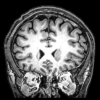MAOI's come with some rather unplesant side effects and while the food restrictions aren't major they can be annoying but the risk of medication interactions significantly reduces what you can take for say a cold or in an emergency department. Realistically most drugs can be combined with an MAOI but psychiatrists become worried about combinations, sometimes realistically other times due to lack of knowledge. However MAOI's while being an important drug for resistant depression are rarely needed.
Neither medication is 'better'. MAOI's may be more effective in highly resistant depression (depression that hasn't responded to at LEAST 4 other antidepressants (including a first gen TCA) at least one agumentation and one combination and at least 1 course of evidence based psychotherapy) but they don't seperate from other drugs in less resistant depression but do show higher side effect burdon.
You needn't worry about long term damage from the use of an SS/NRI. Such 'damage' has never been shown in clinical studies.
You might not be over joyed to hear that withdrawal symptoms present in about 70% of venlafaxine users but in the vast majority of (about 60-70%) they are mild and last no more than 2 weeks. Less than 10% experience a severe AND/OR protracted withdrawal. Its possible that most withdrawal is due to improper tapering/treatment. So its not a major problem as long as its well controlled. Withdrawals from MAOI's tend to be more severe but (possiblely less common (not enough research to be sure)) but there is a slight risk of a true addiction to them.
If this is your second, third of more antidepressant there is a chance that you are just a long responder and repeated tapers and changes mean you haven't had a consistent enough AD effect to respond. As such a longer trial of the antidepressat might be indicated (12-14 weeks, rather than the 8 or so). The dose you are on now is still primarily Serotonergic and little different from being on an SSRI. Increasing the dose to 225mg may well make it more activating, effective and improve response. If you have been on venlafaxine for eight weeks or more and on 150mg for at least 4 of those weeks (if you haven't been on the increased dose for four weeks you might yet notice quite drastic improvements even within a week) then increasing the dose to 225 is certainly called for.
Depression fairly often doesn't respond just to pharmacotherapy and evidence based psycho-social interventions can play an important sometimes deciding factor in response and finally remission. CBT therapy of 12-16 weeks is typical first line. Group CBT is actually possibly more effective that 1:1. There are also online and book courses of CBT which are nearly as effective. Simply put, relying just on antidepressants after the first 1 or 2 have failed is a sure way to stay depressed.
Self management including increasing exercise (even a little (at first)), mindfulness practice, increasing soical activites (join a fun club, group sports, meeting up with friends) and general behavioual activation are also just as effective as psychotherapy and antidepressants.
If after you have failed a course of psychotherapy, tried as much self management as you can manage (greately depends on the severeity of depression, social structures in place and many other factors), then typically after the failure of a second antidepressant that has been tried at a reasonable dosage (150mg+) for no less than 8 weeks and on the drug for no less than 12 weeks another swap or an agumentation is called for.
Deciding on whether an agumentation or a swap is simple. If you feel the Venlafaxine has made a difference (even if not very much at all) then agumentation/combination is the best bet. If you can not tell the difference what so ever then a swap is called for.
The best combinations with venlafaxine are atypical antipsychotics (most evidence), Lithium (good evidence, maybe best to leave until later due to potential side effects) or another antidepressant in combination (mirtazapine (venlafaxine and mirtazapine is known as calafornian rocket fuel and is a common theoretically sound and reasonably evidence based (two very small studies show it to be more effective than 40mg of Tranylcypromine (an MAOI) with significantly less side effects (may reduce/eliminate sexual dsyfunction), addition of an SSRI (questionable theoretically but shown to be effective), addition of bupropion/wellbutrin (not well studied, theoretically sound, side effects may be higher as wellbutrin increases blood plasma venlafaxine by pharmodynamic synergism (lowering the dose or just careful monitioring is perfectly reasonable). Another possibility is simply increasing the dose of venlafaxine to 300-375mg - typically this is used only in severely depressed patients who have had some response or those with confirmed super-metabolism, however it can be used without this. Blood pressure monitioring is required at this dose but its rarely a problem <10% in those without conditions predisposing them to high blood pressure. Increasing the dose like this is often worth it if you have had a relatively poor response but also no or few side effects (suggesting super-metabolism).
The best atypical antipsychotics in order (first 2 equal) are aripirpazole (5-15mg) (least side effects, equal/better evidence than other aaps, may cause or worsen anxiety), Quetiapine (150-300mg good evidence (some weight gain and transient sedation (1-4 weeks)), Olanzepine 2.5-10mg (weight gain can be a problem and metabolic syndrome (in particular those who are at risk already) sedation is often significant but typically wares off), risperidone (some weight gain and sedation and sometimes hyperprolactinaemia). Reading the side effect list of atypical antipsychotics can be scary but its important to remeber that the doses used for depression are A LOT lower than those used for bi-polar or schizophrenia and as such side effects are no worse than ssris or snris.
If agumentation is the best clinical decision I would personally go for in no order Aripirpazole, Quetiapine or Mirtazapine, all three have been shown either by themselves or in combination with other antidepressants to increase the speed of response/work quickly (by as much as two weeks).
Another possibility (I think the drug is avalible in the netherlands) is Tianeptine. It is at least as effective as SSRI's and has a unique mechanism of action. It has a reasonable side effect profile, no worse than that of venlafaxine. Its been poorly studied with other drugs as agumentation (although there are some small positive studies with SSRIs), so it might be best to use this as swap if venlafaxine doesn't work, rather than combining it. However its perfectly reasonable to use it with venlafaxine.
Modafinil IS NOT an antidepressant and will not make you less depressed. It has been shown however to improve functional ability and quality of life (improves cognitive dsysfunction, fatigue and motivation). Sometimes it can work doing this for a while and then poops out. I don't recommend it other than if you intend to use it to help improve your social and functional abilities (which will help your depression). The same can be said for traditional stimulants other than that they seem to work even less well than modafinil.














































